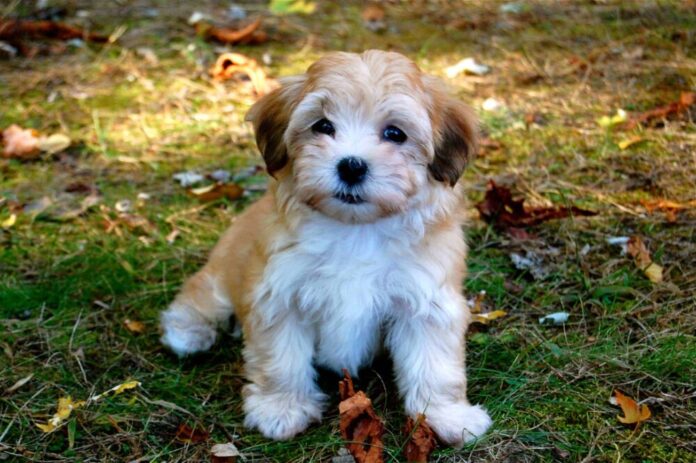Are you searching for independent small dog breeds that can adapt to your busy lifestyle? As a pet parent who values both companionship and autonomy, finding the right balance can be challenging. Today, I’ll share my insights about these wonderful little companions that can handle alone time like champs while still being loving family members.
Why Choose Independent Small Dog Breeds?
Small dogs with independent personalities are perfect for modern living. These independent small dog breeds offer the best of both worlds – the compact size suitable for apartment living and the self-reliant nature that makes them ideal for working pet parents. If you’re interested in learning more about dogs in general, check out our comprehensive guide about different dog breeds and their care requirements.
Top Independent Small Dogs for Your Consideration
1. Chihuahua
These tiny warriors are among the most self-sufficient independent small dog breeds. Despite their size, Chihuahuas possess a strong temperament and can entertain themselves for hours They’re perfect for small spaces and don’t need constant attention
2. Boston Terrier
The “American Gentleman” combines independence with charm. These smart pups adapt well to being alone and don’t require excessive exercise, making them ideal apartment dwellers.
3. Lhasa Apso
Originally bred as palace guards, these dignified little dogs maintain their independent streak. They’re among the most reliable independent small dog breeds when it comes to alone time.
4. Miniature Schnauzer
These spunky terriers are intelligent and self-sufficient They can keep themselves busy but still enjoy quality time with their humans when available
5. Shiba Inu
Though not typically categorized as small, smaller Shibas fit the bill as independent small dog breeds. They’re known for their cat-like independence and cleanliness.
Tips for Living with Independent Dogs
- Create a Safe Space
- Designate a comfortable area
- Provide engaging toys
- Ensure proper ventilation
- Establish Routines
- Consistent feeding times
- Regular exercise schedule
- Predictable alone time
- Mental Stimulation
- Puzzle toys
- Hidden treats
- Interactive games
For more expert advice on pet care and behavior, visit Pet like boss, your trusted source for all things pet-related.
Training Independent Dogs
Even independent dogs need proper training. Here’s what works:
- Positive reinforcement
- Clear boundaries
- Consistency in commands
- Early socialization
- Independence training
Common Misconceptions
-
“Independent means unfriendly”Nope! These dogs can be loving and affectionate while maintaining their autonomous nature.
-
“They don’t need attention”Wrong! They still require love and care, just less constantly than other breeds.
-
“They’re harder to train”Actually, many independent breeds are quite intelligent and trainable.
Health Considerations
When choosing from these breeds, consider:
- Regular vet check-ups
- Breed-specific health issues
- Exercise requirements
- Dietary needs
- Grooming demands
Making the Right Choice
Before getting any of these breeds, ask yourself:
- How much alone time is too much?
- What’s your living space like?
- Can you meet their exercise needs?
- Are you ready for their grooming requirements?
- Does your lifestyle match their personality?
Daily Care Requirements
Even independent dogs need:
- Fresh water always
- Quality food
- Regular exercise
- Mental stimulation
- Social interaction
- Grooming attention
The Benefits of Independent Dogs
- Lower separation anxiety
- Easier adjustment to schedule changes
- Less demanding of constant attention
- Better suited for busy lifestyles
- More adaptable to different situations
Potential Challenges
Be prepared for:
- Stubborn behavior
- Strong personalities
- Need for consistent training
- Possible aloofness with strangers
- Independent decision-making
Success Stories
Many pet parents have found joy with these breeds. Here’s what they say:
“My Lhasa Apso handles my 9-5 job like a champ!””The Miniature Schnauzer fits perfectly with our busy family life!””Our Chihuahua is the perfect mix of independent and loving!”
Final Thoughts
Choosing from these independent small dog breeds can lead to a harmonious relationship that respects both your need for flexibility and their need for autonomy. Remember, every dog is unique, and success depends on matching their personality with your lifestyle.
FAQs
-
How long can these dogs be left alone?Generally, 4-8 hours with proper preparation.
-
Do they need special training?Basic training plus independence training is recommended.
-
Are they good with children?Most are, but early socialization is key.
-
Do they bark a lot?It varies by breed and individual personality.
-
Are they expensive to maintain?Costs are typically lower than larger breeds.
Remember, whether you’re a first-time pet parent or an experienced dog owner, Pet like boss is here to help you navigate the journey of pet parenthood with expert advice and resources.












